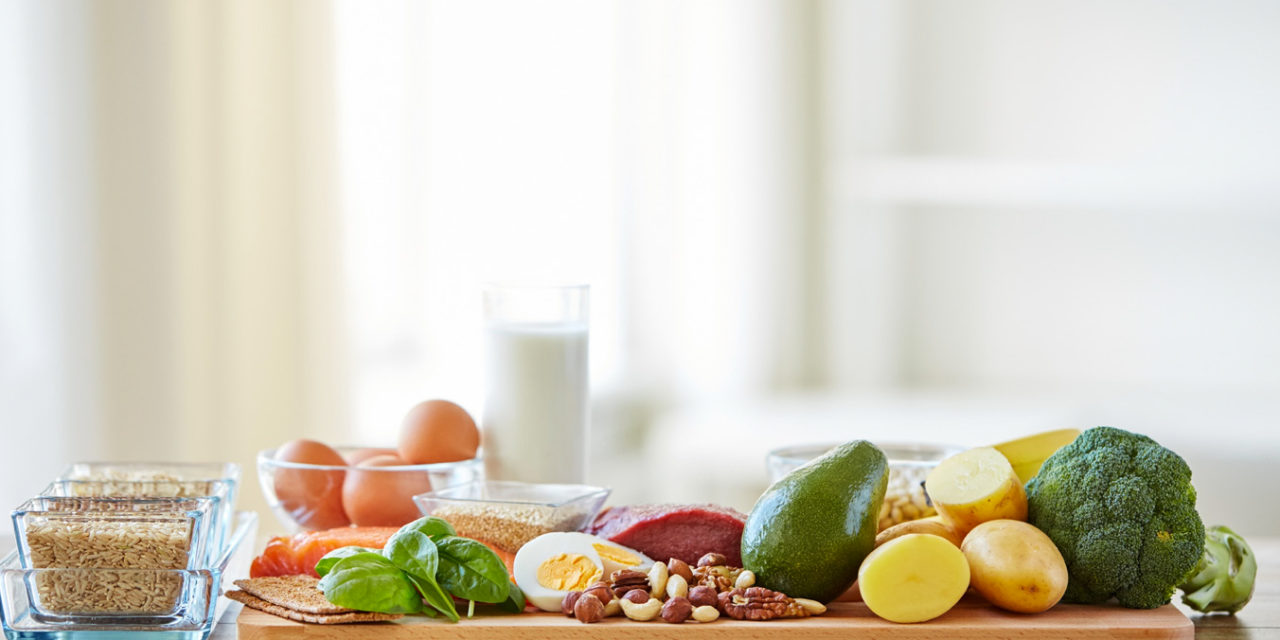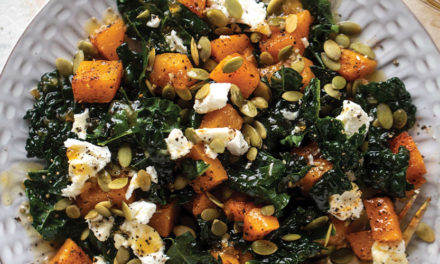The colon is a crucial part of your digestive system. This organ is tasked with re-absorbing fluids and processing waste products for the body to eliminate. With colorectal cancer as the third-most common cancer in the United States, it’s time to start thinking about the role of nutrition in gastrointestinal health.
Keep your colon as healthy as possible with these six strategies:
Chow down on fresh fruits and vegetables.
Choose a variety of colors to maximize the variety of vitamins, minerals, phytochemicals, and antioxidants. In addition, the soluble fiber found in fruits and veggies such as asparagus, artichokes, onions, legumes, bananas, apples, oats, and wheat bran can act as a prebiotic, supporting your “good gut” microbiota. Insoluble fiber found in legumes, whole grains, leafy greens, squash, and root veggies prevents constipation and keeps the walls of the colon strong.
Choose lean meats like fish, chicken, and turkey when possible.
Substitute lentils or other legumes as a protein source for a meatless meal.
Consume enough vitamin D and calcium.
Recent studies suggest these two micronutrients are associated with decreased risk of colorectal cancer; however, men should not consume more than the recommended daily calcium level (2,000 mg) due to the potential risk of prostate cancer with high calcium intake. Dairy products are well known for their rich calcium content, and non-dairy sources of calcium include dark leafy greens such as kale, spinach, and collard greens. Vitamin D can be obtained through sunlight, fatty fish, foods fortified with vitamin D (like dairy products or orange juice), and supplementation with Vitamin D3.
Consider making your grains whole.
Whole grains contain colon-friendly fiber, essential fatty acids, antioxidants, phytochemicals, vitamins, and minerals. Sources include barley, quinoa, whole-wheat flour, wild/brown rice, and oatmeal. Look for the words “100% whole grain” or the whole grain stamp on the packaging.
Get Moving!
A little exercise can go a long way in keeping bowels regular, reducing constipation, and lowering the risk of colon cancer. Whether it’s hiking, running, biking, yoga, kickboxing, hula hooping, or dancing, there’s no wrong way to move.
Drink wisely.
Drinking plenty of water can also help prevent constipation. Use the urine color test to determine whether or not you’ve had enough. Urine color should be pale yellow. Not a fan of plain water? Try adding fresh fruit. Limit alcohol consumption to two drinks/day or less for men or one drink/day or less for women.
It’s small changes like these that greatly reduce the risk of colorectal cancers while boosting overall health!
Leslie Ely, RD, LDN, CEDRD is a Registered Dietitian at Memphis Nutrition Group, a nutrition & lifestyle counseling practice operated by registered & licensed dietitians/nutritionists. Memphis Nutrition Group believes in a non-diet approach that promotes overall health and optimal performance without compromising the enjoyment of food. For more information, call Memphis Nutrition Group at 901.343.6146 or visit MemphisNutritionGroup.com







